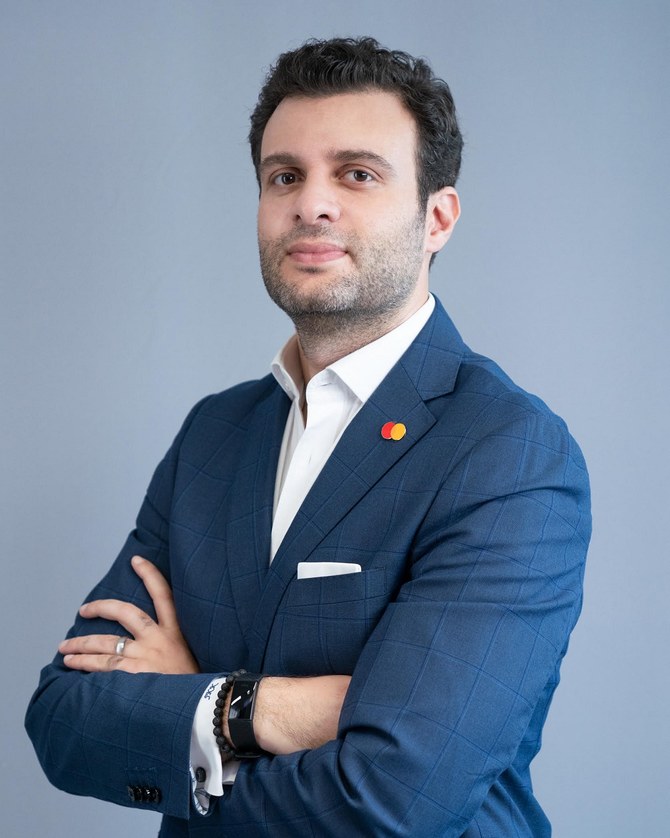A new Mastercard study on consumer sentiment and spending has revealed the rapid growth of online shopping, with 77 percent of consumers in the Kingdom spending more money online since the onset of the pandemic.
The study provides significant insights into how shoppers are rapidly moving away from cash and opting for contact-free and digital payment experiences. These insights are helping e-retailers and businesses in the Kingdom and across the region, to leverage the shift toward online shopping and to deliver fast, convenient and secure transactions.
The study found that 81 percent of consumers in Saudi Arabia consider price as integral to the decision-making process, as well as speed, with nearly 79 percent, which can often mean the difference between checking out or not. Sixty percent of shoppers said promotions and loyalty programs are important, while 56 percent of those surveyed said a good shopping experience includes an easy returns policy.
Moreover, according to the survey, groceries, healthcare, apparel and banking have seen the highest surge of online activity. More than 68 percent of Saudi consumers said they had shopped online for groceries, 73 percent for clothing, and over 65 percent of respondents said they had purchased medicine online. And, as e-commerce increasingly becomes a part of everyday life, consumers are moving other aspects of their financial management to digital, with 64 percent of respondents having started banking online. The research also reveals the rising impact of social media on consumer spending habits, with 58 percent and 61 percent of respondents saying they had discovered new sellers through Facebook and Instagram respectively.
With the surge in digital payments, businesses and online retailers are now faced with the challenge of ensuring fast, convenient, easy and secure transactions. Mastercard has been working with businesses, financial institutions and other stakeholders to advance digital payments in the Kingdom, and the pandemic has reinforced the necessity to continue evolving a safe and secure consumer payment experience.
“It is clear from the research that shoppers are rapidly moving toward online retail and opting for contact-free and digital transactions. This, in turn, is presenting e-retailers and businesses in the Kingdom, and across the region, with new challenges on how to best leverage the shift toward online shopping and deliver fast, convenient and secure transactions,” said J.K. Khalil, Country Manager — Saudi Arabia, Bahrain and Levant, Mastercard. He said Mastercard is doing its part in supporting safe online shopping for consumers.
“The focus for our customers and therefore end-users is on delivering a safe and secure digital experience. Consumers are also becoming increasingly aware of the associated risks — over half (54 percent) of those surveyed in our consumer e-commerce study said that a secure checkout was fundamental for a good shopping experience,” Khalil said.
“We continue to work hard to reduce online fraud and protect retailers from data breaches, while ensuring that consumers still enjoy a convenient buying journey. As part of this journey, we introduced tokenization, for example, which encrypts consumer data by replacing card numbers with digital tokens. It means that card numbers are not stored anywhere, which prevents improper usage and minimizes online fraud, allowing physical shoppers and e-shoppers to be confident at payment checkout points or gateways without the worry of fraud,” he added.
In October last year, Saudi Arabia introduced a new e-commerce law that was meant to unlock the country’s significant potential as a regional e-commerce hub. The Ministry of Commerce and Investment adopted the Implementing Regulations of the E-commerce Law, with immediate effect on Jan. 31, to accompany the recent shift toward electronic transactions that commerce is experiencing globally, and to help achieve the strategic objectives of Vision 2030.
The new regulations aim to (1) increase confidence in e-commerce transactions; (2) provide consumers necessary protections against fraud, deception and misinformation; and (3) boost and develop e-commerce activities in the Kingdom.
This opportunity was helped further by an affluent and tech-savvy population that sought the convenience and security of digital experiences. The Kingdom enjoys one of the highest Internet penetration and mobile usage numbers in the region. According to recent data, 74 percent of the Saudi population were Internet users in 2018 and this figure is estimated to grow to 96 percent in 2023 while smartphone users in the Kingdom are expected to grow from 19.4 million to 21.3 million.
“The potential for e-commerce in the wider MENA region right now is huge. The e-commerce market in Saudi Arabia is estimated to reach nearly $24 billion by 2026, according to ResearchAndMarkets.com. And the initial capital investment of $1 billion by Saudi Arabian Public Investment Fund as part of its 50 percent equity stake in noon.com in 2017, forever changed the e-commerce landscape in the region,” Khalil said.
Commenting on Mastercard’s latest consumer study, he said that while adapting to the “next normal,” people have been changing the way they consume entertainment and learn new skills. “In fact, 79 percent of KSA consumers said they were using the downtime as a positive learning experience. More than half of the respondents (64 percent) said they had taken a virtual cooking class, 47 percent have been mastering a new language and 26 percent have been learning to dance online,” Khalil added.
He noted that 45 percent of respondents have been educating themselves on do-it-yourself (DIY) projects, and just over a third (37 percent) said they have been learning how to film online. As people spend more time at home, the demand for online entertainment has also surged, with 73 percent of respondents having invested in entertainment subscriptions and 62 percent in online gaming.


















